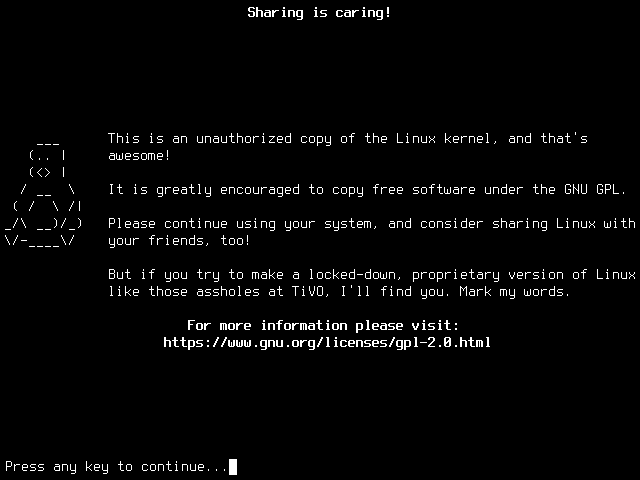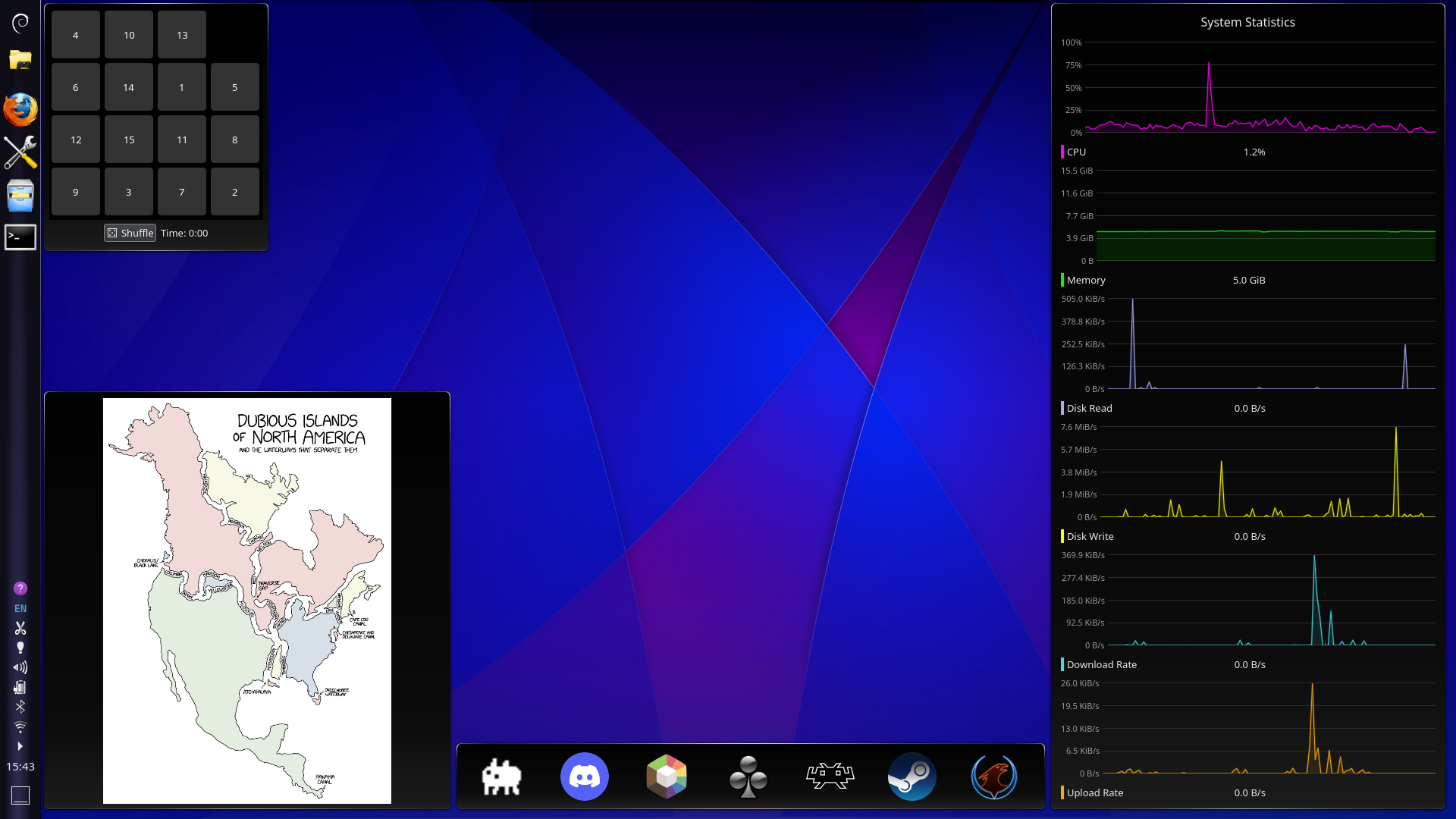Going by their Mastodon account, seems they were erroneously detected as "from a US-sanctioned region" and it took too long for said error to be resolved, so they just made the switch.
ipacialsection
I'm not a classic Linuxer (I switched in 2015) but I did once try Mandrake out of historical curiosity. From what I hear it was the recommended "beginner-friendly" distro before Ubuntu came out. And based on how hard it was to get working on a VM, I now understand why classic Linuxers talk about Ubuntu like it was this huge sea change.
"I can't stop the heterocyclic declination!" (TNG: "Samaritan Snare")
"Move Along Home" would work so much better as a Doctor Who episode. Has a kind of absurdity that is perfect for Who, but stands out in a bad way in Trek.
Niccolo Ve did a pretty comprehensive summary of all his problems recently: https://inv.tux.pizza/watch?v=mhqeuO9RKKk
He's been on a right-wing, transphobic, anti-woke downward spiral for years now.
Actually, I wonder if this show was greenlit in some way because of Prodigy's cancellation. They're trying to draw in a younger audience for the sake of the franchise's long term prospects, but Prodigy didn't get as many views on Paramount+ as they hoped (and is now on a different service), so they wanted to make a version of that which is better suited to streaming, without the awkward concessions to Nickelodeon's release schedule.
Though, I think the problem is really Paramount+. A streaming service that is best known for Star Trek and a bunch of dramas that old people watch, is unlikely to get anyone under 30 to subscribe to it for Star Trek.
Doom was officially ported to Linux in 1994, and a modified version of Linux Doom was made source-available in 1997, then open-source (GPLv2) in 1999. It was one of the first high-quality open-source games. Those versions do not work on current Linux distros, but they have enabled modern source ports such as PrBoom+ and Chocolate Doom to be developed, and those are available in nearly every distro's repository.
It's very new. Previously the system would just drop to a console with a message saying "Kernel panic: not syncing: [reason]" and a whole bunch of debug info.
But still, on a well-maintained system, that pretty much never happens. Mainly because Linux is significantly more resilient to faults in device drivers than Windows.
I'm against a megathread. That would be too busy and I think there will be more than enough to discuss about each episode.
For entirely selfish reasons, I'd like individual discussion threads for each episode that come out one or two a day, since that's the pace I expect to be watching it (optimistically).
Though, I think the best option for everyone might be five-episode blocks. That would allow both bingewatchers and slower viewers to enjoy the conversation without spamming the feed, and will match up well enough with the "parts" it would have been split into if it aired on Nickelodeon that both broad and individual episode discussions will make sense.
Yeah, 50% (ram / 2) seems about right.
The major tradeoff with zRAM is that programs are much more likely to crash due to running out of memory, but will run faster when memory is running low and freezes are less likely. You can think of it as offloading the pressure that traditional swap puts onto your disk, onto the (much faster) CPU. There will be an impact on CPU usage, but not enough to cause noticeable slowdown; in my experience running Linux, the CPU is almost never the reason something is slow, and is only going to be under significant pressure if you're running a 3D game in software rendering, compiling a large program, or another complex CPU-bound task.
I wouldn't recommend making the switch unless you often encounter system freezes or slowness while running tasks that use a lot of RAM (like web browsing on certain sites, or gaming), but it will improve things in that case.


Just as long as it isn't a .rar.